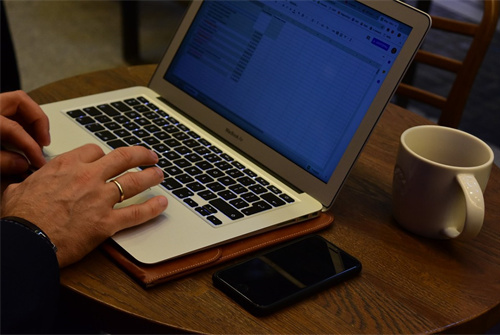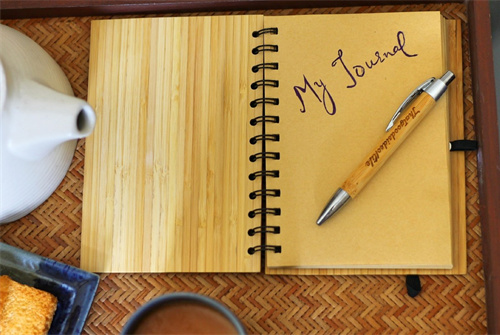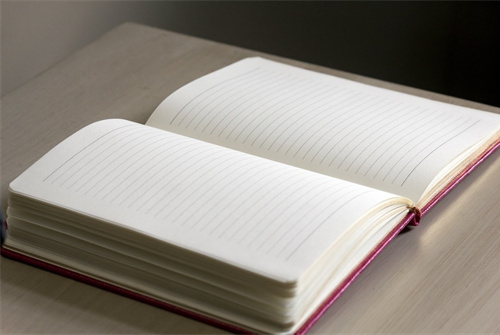【简介】感谢网友“15663”参与投稿,这里小编给大家分享一些,方便大家学习。
【第1句】:八年级下册英语第九单元重点句
【第1句】:易混词语 when-while each-every surprising-surprised-amazing happen-take place accident-event everyday-every day 【第2句】:常用词组 【第1句】: get out of 【第2句】: go into 【第3句】: walk down 【第4句】: take off 【第5句】: be surprised 【第6句】: the Museum of Flight 【第7句】: take turns 【第8句】: tell stories 【第9句】: jump down (from) 【第10句】: take photos 【第11句】: run away 【第12句】: think about 【第13句】: next to 【第14句】: in history 【第15句】: shout to/at 【第16句】: hear about 【第17句】: at that time 【第18句】: have fun 【第19句】: in science 【第20句】: take place 【第21句】: the World Trade Center 【第22句】: around the earth 【第23句】: all over the world 【第24句】: come out of 【第25句】: divide into 【第3句】:重点句子 【第1句】: The boy was walking down the street when the UFO landed. 【第2句】: While the girl was shopping , the alien got out. 【第3句】: Our teacher asked us to stop what we were doing and listen. 【第4句】: Not all events in history are as terrible as this. 【第5句】: People often remember what they were doing when they heard the news of important events in history. 【第4句】:语言语法 谈论过去的事情,过去进行时(was/were 动词的过去分词) 这是我在一个网站里找到的。
这个网站的网页是 /。
【第2句】:八年级下册英语第【第8句】:【第9句】:十单元的重点词语、句子、短语
新目标八年级下册英语单词 Unit 1 将;会;要33(反身代词)我自己;我本人机器人34面试;面谈每件事物35预言;预测v纸;纸张36预言;预测n较少的;更小的37动词come的过去式污染38(希望等)实现;达到树;树木39声音建筑物;楼房40公司宇航员,航天员41动词think的过去式火箭42小说空间;太空43使人不愉快的空间站44科学家飞行45未来,将来动词take的过去式46早已;已经月亮;月球47动词make的过去式落下;跌落48工厂动词fall的过去式49简单的;简易的爱上(某人或某物)50这样的;这种单独地;孤独地51厌烦的;厌倦的宠物52各地;到处鹦鹉。
【第3句】:八年级下册英语过去分词表
lay laid laid learn learned(learnt) learned(learnt) leave left left lie lay(lied) lain(lied) lose lost lost make made made may might mean meant meant meet met met pay paid paid put put put read read read ride rode ridden ring rang rung say said said see saw seensell sold sold seng sent sent shall should show shoued showed (shoun) sing sang sung sit sat sat sleep slept slept speak spoke spokenspell spelled(spelt) spelled(spelt) spend spent spent stand stood stood sweep swept swept swim swam swum take took taken。
【第4句】:八年级上英语7到9单元的短语和句子复习越多越好
★希望做某事hope to do sth. ★决定做某事decide to do sth ★同意做某事agree to do sth. ★需要某人做某事need to do sth.★使用某物做某事use sth to do sth ★迫不及待做某事can't wait to do ★准备做某事get/be ready to do ★尽力/努力做某事try to do sth ★计划做某事plan to do sth. ★不得不have to do ★轮流做某事take one's turns to do sth. ★拒绝做某事refuse to do sth.★告诉某人做某事tell sb. to do sth. ★请某人做某事ask sb. to do sth.★希望某人做某事wish sb. to do sth. ★想要某人做某事want /would like sb. to do sth.★同意某人做某事agree sb. to do sth. ★教某人做某事teach sb. to do sth.★喜欢/想要某人做某事 like sb. to do sth. ★帮助某人做某事help sb. to do sth/help sb.do ★encourage sb to do鼓励某人做 ★It's one's turn to do sth. 轮到某人做某事 It's your turn to clean the blackboard.★It's time(for sb.) to do sth.是某人做某事时候了 例句:It's time for me to go home.★It's +adj. for/of sb. to do sth. 对于某人来说做某事是…… 例句: It is easy for me to learn it well. It is very kind/foolish/nice of you to do so. ★ It takes sb. sometime to do sth. 某人做某事花了某时间 例句: 【第1句】:It takes me an hour to get to school by bike. 【第2句】:It took me an hour to watch TV last night. 【第3句】:It will take her two weeks to finish the work.★too+ adj./adv. to do sth. 太…..而不能 例: He was to angry to say a word.★find/think/feel it +adj. to do sth.发现/认为/感到做某事是… I find/think/feel it hard to learn English well. ★序数词+to do 第…..个做某事 例句:Who is the first to get there?★我不知/忘记了怎么办。
I didn't know/forgot what to do.★离开房间时不要忘记/记住关灯 例句:Don't forget/Remember to turn off the lights when you left the room ★be+ adj+to do sth 例句:I am very sorry to hear that. I am ready to help others. I am happy / pleased / glad to meet you.在以下结构中 【第1句】: enjoy doing sth 喜欢做某事;【第2句】: finish doing sth; 完成做某事; 【第3句】:feel like doing sth 想要做某事;【第4句】: stop doing sth 停止做某事(原来的事) 【第5句】:forget doing sth 忘记做过某事【第6句】: go on doing sth 继续做某事(原来的事);【第7句】:remember doing sth 记得做过某事【第8句】: like doing sth 喜欢做某事; 【第9句】:find /see/hear/watch sb doing发现/看到/听到/观看某人做【第10句】: try doing sth 试图做某事; 【第11句】: need doing sth 需要做某事;【第12句】: prefer doing sth 宁愿做某事; 【第13句】:mind doing sth 介意做某事;【第14句】: miss doing sth 错过做某事; 【第15句】:practice doing sth 练习做某事;【第16句】: be busy doing sth 忙于做某事;【第17句】:can't help doing sth 禁不住做某事;【第18句】:waste time/money doing 浪费时间/钱做; 【第19句】:keep sb.doing 让…始终/一直做…【第20句】: stop sb.(from)doing 阻止某人做某事【第21句】: prefer doing B to doing B=like A better than A喜欢做A更喜欢做B【第22句】: “do some +doing”短语 如:do some shopping/do some washing/do some reading/do some practicing/do some cleaning/do some speaking【第23句】:“go doing”短语去做某事(主要指文娱活动等)如:go shopping/go fishing/go swimming/go hiking/go skating/go camping/go skiing(滑雪/go boating /go hunting (打猎).注意动词的过去分词的常见搭配: I feel(am/was) excited/ surprised/ amazed /interested /tired/pleased/worried/lost【第42句】: 表示某人情绪有关的形容词用法: be/become+ upset/tired/excited/interested/worried/surprised/amazed/annoyed 说明:当主语是某人时,注意后面的形容词一般是-ed 结尾的单词,而当主语是某物时或修饰名词时,注意后面形容词一般是-ing结尾单词.) I was surprised/interested/amazed when I heard the surprising/interesting/amazing news 。呵呵``希望楼主采纳~^^。
【第5句】:新目标被动语态句
【第2句】:被动语态的基本结构: 主语+be +过去分词(+by+动作的发出者)① 一般现在时:am/is/are+过去分词如: Trees are planted every year. ② 现在进行时 am/is/are+ being +过去分词如:The road is being repaired. ③ 现在完成时 have/has + been +过去分词如:The work has been finished. ④ 一般过去时 was/were + 过去分词如:The story was told by him. Many birds were killed last year. ⑤过去进行时 was/were+ being + 过去分词如: The new house was being painted when I got home. ⑥过去完成时 had +been+ 过去分词如: He told me that the work had been finished. ⑦一般将来时 will +be + 过去分词如: The problem will be discussed tomorrow. ⑧ 过去将来时 would/should +be +过去分词如: He said that the Christmas tree would be put up soon.⑨情态动词的被动语态情态动词+ be +过去分词 如:The problem must be solved soon.Children should be taught to love animals.。
【第6句】:八年级下册英语九九单元单词
robot n. 机器人won't =will not 将不they'll (=they will)everything pron. 每件事,一切paper n. 纸,文件,论文,报纸; v. 用纸糊,贴壁纸; adj.纸制的fewer a. 少的; int. 较少数; a. 较少的pollution n. 污染tree n. 树she'll (=she will,she shall)building n. 建筑物astronaut n. 宇航员rocket n. 火箭,烟火; v. 发射火箭,猛涨space n. 位置,空间,距离; v. 隔开,分隔space station 空间站fly n. 苍蝇,两翼昆虫,飞行; v. 飞,飞翔,逃走took v. 拿,取(p.t.)moon n. 月亮I'll =I shall 我将。
fall n. 秋天,落下,瀑布; v. 倒下,落下,来临fell v. 跌落,落下,降低fall in love with 爱上alone a. 单独的,仅仅; ad. 单独地pet a. 宠爱的; n. 宠物; vt. 抚摸,轻抚parrot n. 鹦鹉; v. 学舌probably ad. 大概,或许go skating 去滑冰;去溜冰suit n. 套装,诉讼,请求; v. 适合,取悦,满足be able to 能;会dress n. 女装,服装; v. 穿著casually ad.非正式的,随意的which a. 哪一个,哪一些; int. 哪个; pron. 哪一个even a. 平坦的,偶数的,相等的; ad. 甚至,恰好,正当the World Cup 世界杯myself pron. 我自己interview n. 面谈,访问,接见; v. 接见,会谈predict v. 预知,预言,预报future a. 将来的; n. 将来,未来; n. 期货prediction n. 预言,预报came come的过去式come true 实现,达到sound n. 声音,吵闹,海峡; a. 健全的,可靠的,合理的; v. 听,发出声音,测量company n. 公司,友伴,交际thought n. 想法,思想; v. (think的过去式和过去分词)想,思考,认为; vbl. 想,思考,认为fiction n. 小说,虚构unpleasant a. 使人不愉快的,讨厌的scientist n. 科学家in the future 将来however ad. 然而; conj. 然而,可是,不过hundred n. 百,百个东西; a. 百,百个hundreds of 成百上千的,数以百计的already ad. 已经made a. 已制成的,成功的,创造的; v. 做,使,安排; vbl. 做,造成,安排factory n. 工厂simple a. 简单的,简朴的,单纯的such a. 如此的,这样的bored a. 厌烦的,无聊的everywhere ad. 到处,无论何处human a. 人的,人类的; n. 人shape n. 形状,定形,身材; v. 定形,使。成形,塑造huge a. 庞大的,巨大的earthquake n. 地震snake n. 蛇; v. 蜿蜒,弯弯曲曲行进look for 寻找,寻求possible a. 可能的electric a. 电的toothbrush n. 牙刷seem v. 像是,似乎impossible a. 不可能的housework n. 家务劳动rating n. 等级will 将:会:要robot n. 机器人won't =will not 将不they'll (=they will)everything pron. 每件事,一切paper n. 纸,文件,论文,报纸; v. 用纸糊,贴壁纸; adj.纸制的fewer a. 少的; int. 较少数; a. 较少的pollution n. 污染tree n. 树she'll (=she will,she shall)building n. 建筑物astronaut n. 宇航员rocket n. 火箭,烟火; v. 发射火箭,猛涨space n. 位置,空间,距离; v. 隔开,分隔space station 空间站fly n. 苍蝇,两翼昆虫,飞行; v. 飞,飞翔,逃走took v. 拿,取(p.t.)moon n. 月亮I'll =I shall 我将。
fall n. 秋天,落下,瀑布; v. 倒下,落下,来临fell v. 跌落,落下,降低fall in love with 爱上alone a. 单独的,仅仅; ad. 单独地pet a. 宠爱的; n. 宠物; vt. 抚摸,轻抚parrot n. 鹦鹉; v. 学舌probably ad. 大概,或许go skating 去滑冰;去溜冰suit n. 套装,诉讼,请求; v. 适合,取悦,满足be able to 能;会dress n. 女装,服装; v. 穿著casually ad.非正式的,随意的which a. 哪一个,哪一些; int. 哪个; pron. 哪一个even a. 平坦的,偶数的,相等的; ad. 甚至,恰好,正当the World Cup 世界杯myself pron. 我自己interview n. 面谈,访问,接见; v. 接见,会谈predict v. 预知,预言,预报future a. 将来的; n. 将来,未来; n. 期货prediction n. 预言,预报came come的过去式come true 实现,达到sound n. 声音,吵闹,海峡; a. 健全的,可靠的,合理的; v. 听,发出声音,测量company n. 公司,友伴,交际thought n. 想法,思想; v. (think的过去式和过去分词)想,思考,认为; vbl. 想,思考,认为fiction n. 小说,虚构unpleasant a. 使人不愉快的,讨厌的scientist n. 科学家in the future 将来however ad. 然而; conj. 然而,可是,不过hundred n. 百,百个东西; a. 百,百个hundreds of 成百上千的,数以百计的already ad. 已经made a. 已制成的,成功的,创造的; v. 做,使,安排; vbl. 做,造成,安排factory n. 工厂simple a. 简单的,简朴的,单纯的such a. 如此的,这样的bored a. 厌烦的,无聊的everywhere ad. 到处,无论何处human a. 人的,人类的; n. 人 m.niuyingyu.cnshape n. 形状,定形,身材; v. 定形,使。成形,塑造huge a. 庞大的,巨大的earthquake n. 地震snake n. 蛇; v. 蜿蜒,弯弯曲曲行进look for 寻找,寻求possible a. 可能的electric a. 电的toothbrush n. 牙刷seem v. 像是,似乎impossible a. 不可能的housework n. 家务劳动rating n. 等级。
【第7句】:造十个英语过去分词的句子
He bought it last week .We got a letter from our old friend yesterday.They saw a film last Friday .Tom was late for class this morning .He made great progress last term.He made a model plane the other。
He bought it last week .We got a letter from our old friend yesterday.They saw a film last Friday .Tom was late for class this morning .He made great progress last term.He made a model plane the other。
【第8句】:八年级下英语unit9 语法要点 翻译
Unit 9 Have you ever been to an amusement park?【第1句】: take a ride 兜风【第2句】: take the subway【第3句】: have been to, have gone to【第4句】: on the one hand, on the other hand【第5句】: a good place to practice your English【第6句】: outside of China【第7句】: end up 结束【第8句】: take a holiday/vacation 度假【第9句】: all year round 全年【第10句】: such as 例如 【第11句】: a zoo called/named… 一个叫做……的动物园【第12句】: during the daytime 在白天【第13句】: wake up 醒来【第14句】: wake somebody up 唤醒/叫醒某人【第15句】: have a great/nice/wonderful/great time 玩得高兴【第16句】: a wonderful place to take a holiday/to visit 一个度假/游览的好地方【第17句】: an English-speaking country 一个讲英语的国家【第18句】: be asleep=fall asleep 睡着【第19句】: go on a DISNEY cruise【第20句】: travel to another province of China【第21句】: the reasons for learning English【第22句】: an exchange student【第23句】: improve my listening skills【第24句】: one….,the other..【第25句】: Three quarters of the population are Chinese. 四分之三的人口是中国人(谓语动词用复数形式)【第26句】: What's the population of China? 中国的人口是多少?(不用how much提问) 【第27句】: the population of China is 【第1句】:3 billion 中国的人口是13亿。
(谓动词用单形式) 本单元目标句型:【第1句】: Me neither.【第2句】: It's fun to learn another language.【第3句】: Disneyland is an amusement park, but we can also call it a theme park.【第4句】: It has all the normal attractions you can find at an amusement park, but it also has a theme.【第5句】: the roller coaster is themed with Disney characters.【第6句】: You can see Disney characters walking around Disneyland all the time.【第7句】: These are huge boats that also have the Disney theme. You can take a ride on the boat for several days, and you sleep and eat on board.【第8句】: There are also many attractions on board just like any other Disneyland.【第9句】: The boat rides all take different routes, but they all end up in the same place.【第10句】: It is just so much fun in Disneyland.【第11句】: Here's what two of our students said about our school.【第12句】: When I was a young girl, all I ever wanted to do was traveling, and I decided that the best way to do this was to become a flight attendant .【第13句】: I discovered that the most important requirement was to speak English well, so I studied English at the Hilltop Language School for five years before I became a flight attendant.【第14句】: It was because I could speak English that I got the job.【第15句】: It's all I have ever wanted to be.【第16句】: However, I know that I have to improve my English, so I have started taking lessons at the school.【第17句】: Maybe when I leave school I'll think about becoming an English teacher rather than a tour guide.【第18句】: What other job is he thinking of doing?【第19句】: You can rent bicycles at the amusement park.【第20句】: For many Chinese tourists, this small island in Southeast Asia is a wonderful place to take a holiday.【第21句】: Maybe you fear that you won't be able to find anything to eat in a foreign country.【第22句】: However, if you 're feeling brave, Singapore is an excellent place to try new food.【第23句】: If you go to see lions, tigers, or foxes during the daytime, they'll probably a asleep.【第24句】: One great thing about Singapore is that the temperature is almost the same all year round..this is because the island is so close to the equator. So you can choose to go whenever you like—spring, summer, or winter.现在完成时句型举例:【第1句】: Have you ever been to an amusement park? 你曾经去过游乐园吗?Yes, I have./ No, I haven't. 【第2句】: I have never been there. Me neither=Neither have I. 我也没有.【第3句】: Where is he? He has gone to the Beijing.【第4句】: How long has he been in Beijing? (不能用come/arrive)【第5句】: I've never been to an aquarium. 我从没去过水族馆.【第6句】: I have been a student here for a year. 我成为这的学生有一年了. (不能用become) =I became a student here a year ago.【第7句】: He has been dead for two years.(不能用die)=he died two years ago.【第8句】: I have been a teacher since ten years ago(for ten years.) (不能用become)【第9句】: I have just/ever/already/never seen the movie. Have you ever heard of the man before?本单元语法讲解 现在完成时【第1句】:现在完成时态表示过去发生的动作对现在造成的影响或结果。本时态标志词:already (“已经”,用于肯定句中,放在have /has之后或句尾); yet (“仍然”“还”,用于疑问句或否定句的句尾) just(“刚刚”,放在have /has之后); before(“以前”,放在句尾);ever(“曾经”,放在have /has之后) never (“从没有”,在have /has之后) 例句:【第1句】:Our teacher has just left. 【第2句】:We have studied English already.【第3句】:I have not finished the homework yet. 【第4句】:He has never been to Beijing before.【第2句】:某个动作从过去已经开始,一直持续到现在,还有可能持续到将来.动作的持续性要通过一段时间来表示一段时间的表达方法有两种:for: +一段时间 for a year for two weeks for three years Since +过去的某一时刻, since nine since last week Since +一般过去时态的时间。
【第9句】:八年级下册英语unit9reading的语法
Unit 9 Useful Expressionhear of 听说hear from 收到…的消息/来信take a ride 兜风end up 结束argue with sb. 与某人争吵roller coaster 过山车a flight attendant 一个机组乘务员in fact 事实上all over the world 全世界think about 考虑think of 想起;认为rather than 宁可;而不是neither…nor… 既不…也不…three quarters of 四分之三for example 举个例子such as 例如on the one hand,… on the other hand,…. 一方面…,另一方面…be asleep 睡着(状态)fall asleep 睡着(动作)Key sentencesHave you ever been to a water park? 你曾经去过水上公园吗?No, I haven't. 不,我没有。
Me neither. = Neither/Nor have I. 我也没有。这是一个否定的省略句。
它的结构是“ Neither/Nor + be动词/助动词/情态动词+主语”。而用在肯定的省略句中时要使用so,它的结构是“So+ be动词/助动词/情态动词”。
如:-- I paid 20 yuan for this book.-- So did I.The roller coaster is themed with Disney characters. 过山车是以迪斯尼的人物为主题的。The boats take different routes, but they all end up in the same place. 虽然船的路线不同,但它们都停泊在同一个地方。
It's just so much fun in Disneyland. 迪斯尼乐园里有如此之多的乐趣。It was because I could speak English that I got the job. 只是因为我能说英语,我得到了这份工作。
More than three quarters of the population are Chinese. 超过四分之三的人是中国人。This is because the island is so close to the equator. So you can choose to go whenever you like. 就因为这个岛是如此接近赤道。
所以只要你愿意你任何时候都可以去。Grammar 现在完成时用法:动作到现在已经完成或刚刚完成; 过去发生或已完成的动作对现在造成的结果和影响; 过去开始一直持续到现在的动作或状态。
基本结构:have/has + V.过去分词时间状语:already, yet, just, ever, never, once, twice, so far, ever since, for a long time, for + 一段时间, since + 过去的时间点/过去时的从句,等。注意事项: A. 现在完成时是现在的时态,重点表达目前的结果和状态; B. 表示动作从过去开始持续到现在用for + 时间段, since +点时间连用。
对for与since短语提问用how long。 C. 现在完成时从不与when引起的疑问句联用。
D. have been to:去过… have gone to:去了… have been in:呆在… E. 短暂性动词变为延续性动词: buy --- have had borrow --- have kept join --- have been in / have been a member of become --- have been a member make friends --- have been friends die --- have been dead get to know --- have known come/go to do --- have done catch a cold --- have had a cold begin/start to do --- have done begin / start --- have been on enter / come / arrive / get to / reach --- have been in/at go / leave for / set off / set out --- have been away fromsince,for在现在完成(进行)时中的用法差异since 后接过去的时间点或一般过去时的从句。He has been an English teacher since three years ago.We have known each other since we came to study in this university.for后接时间段He has lived here for three years.现在完成时与一般过去时的区别 现在完成时表示过去发生的某一动作对现在造成的影响和结果,强调的是现在的情况,所以它不能和表示过去的时间状语连用,如:yesterday, last night, three weeks ago, in 1990等。
而一般过去时只表示过去的动作或状态,和现在不发生关系,它可以和表示过去的时间状语连用。如: He has lived here since 19【第92句】: 1992年以来他一直住在这里。
(他现在还住在这里) He lived here in 19【第92句】: 1992年他住在这里。(并不涉及他现在是否住在这里)祝你学习进步,更上一层楼!请记得采纳,谢谢!(*^__^*)。
【第10句】:英语(新目标)八年级下册第九单元详解
新目标英语八年级下Unit 9 Have you ever been to amusement park单元简案 Teaching goals : 【第1句】: 掌握如何运用现在完成时。
【第2句】: 对比现在完成时,一般过去时的用法。 【第3句】: 描述某人曾经去过哪些有趣的地方。
Important and difficult points : 【第1句】: 现在完成时态。 【第2句】: so 和neither 的区别。
【第3句】: have been to sw 与have gone to sw 的区别。 Structures : Have you ever been to an aquarium ? Yes , I've been to an aquarium . No ,I haven't . No ,I've never been to an aquarium . I've never been to a water park . Neither have I . Functions : Talk about past experiences . Periods: seven periodsPeriod 1 【第1句】:The topic: The Present Perfect Tense. 【第2句】:Teaching aims and demands: Key vocabulary Target language(.a) Have you ever been to an amusement park? Yes, I have, I went to Fun Times Amusement Park last year. (b) Have you ever been to to a water park? No, I haven't. 【第3句】:Teaching Difficult Points Making students to undstand the usingof The Present Perfect Tense. 【第4句】:Teaching Key Points: Making students to know how to using The Present Perfect Tense. 【第5句】: Prepareing For Class:Revise The Present Perfect Progressive Tense. 【第6句】: Teaching methods:From the old tense to the new tense. 【第7句】: The Arrangment of Classes: one period 【第8句】:Teaching Procedures Step【第1句】:Revision and lead-in 【第1句】: Let's revise The Present Perfect Progressive Tense. 【第2句】: Today we will learn another kind of tense------- The Present Perfect Tense. Using: 【第1句】:表示过去发生或已经完成的动作对现在造成的影响或结果。
【第2句】:表示从过去某一时间开始一直持续到现在的动作。 (a)Structure: S+have +p.p(过去分词)Eg. I have had my lunch. (b)过去分词的构成:(略) Step 【第2句】: Exercise. 【第1句】:They have been to Shanghai. 【第2句】:I have studied English for 3 years 【第3句】:He has finished his homework. Step 【第3句】: SB Page 68 , 1a . 【第1句】: Read each of the words and phrases at the top of the page to the class . 【第2句】: Read the instructions . 【第3句】: Do a quick check to see where Ss would like most to visit . Step【第4句】: SB Page 68 , 1b . 【第1句】: Read the instructions . 【第2句】: Point out the sample answer . 【第3句】: Play the recording .Ask Ss to check off their answers . Steo【第5句】: SB Page 68 , 1c . 【第1句】: Read the instructions for the activity . 【第2句】: Point to the example in the sample dialogue .Ask two students to read the dialogue to the class . 【第3句】: Then have Ss work in pairs . 【第4句】: Check the answers by calling on several different pairs of students to say their conversations to the class .。









